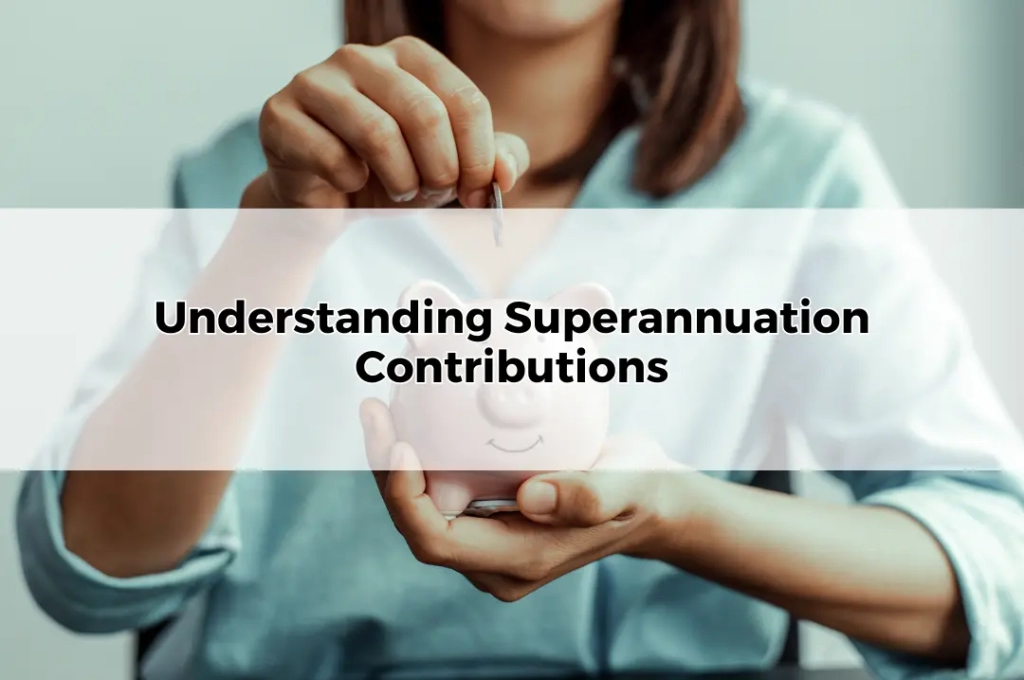Understanding Superannuation Contributions
Table of Contents
ToggleIntroduction
The Importance of Superannuation Contributions
Superannuation contributions are a fundamental aspect of financial planning for retirement in Australia. They represent a vital component of ensuring financial security and comfort in one’s later years. Regular contributions to your superannuation fund can significantly enhance your savings, providing a robust financial buffer when you retire.
Overview of Superannuation System in Australia
Australia’s superannuation system is designed to help citizens save for retirement. It involves mandatory contributions from employers, voluntary contributions from individuals, and even government incentives. Understanding how these contributions work can help you make informed decisions to maximise your retirement savings.
Types of Superannuation Contributions
Employer Contributions
Employer contributions form the backbone of the superannuation system. These are mandatory payments made by employers into their employees’ super funds, ensuring a steady growth of retirement savings over an individual’s working life.
Personal Contributions
Personal contributions are voluntary payments made by individuals into their superannuation funds. These can be concessional or non-concessional, each with its own set of rules and tax benefits.
Government Co-Contributions
Government co-contributions are additional payments made by the government to boost the superannuation savings of eligible low and middle-income earners. This incentive encourages more people to save for their retirement.
Employer Contributions
Superannuation Guarantee
The Superannuation Guarantee (SG) is a compulsory system where employers must contribute a percentage of an employee’s earnings into their superannuation fund. The current SG rate ensures that all workers steadily accumulate retirement savings.
Salary Sacrifice
Salary sacrifice involves an agreement between an employer and employee to contribute a portion of the employee’s pre-tax salary to their superannuation fund. This strategy can reduce taxable income while boosting retirement savings.
Personal Contributions
Concessional Contributions
Concessional contributions are made from pre-tax income and include employer contributions and salary sacrifice contributions. These contributions are taxed at a lower rate than most income tax rates, providing a tax-effective way to save for retirement.
Non-Concessional Contributions
Non-concessional contributions are made from after-tax income. While they do not provide immediate tax benefits, they can be beneficial as the earnings within the super fund are taxed at a concessional rate.
Government Co-Contributions
Eligibility Criteria
To qualify for government co-contributions, individuals must meet certain income thresholds and make personal (non-concessional) contributions to their superannuation fund. This incentive is aimed at lower-income earners.
Benefits of Government Co-Contributions
Government co-contributions can significantly boost your superannuation balance, especially if you are in the lower income bracket. It’s an excellent way to enhance your retirement savings with minimal effort.
Contribution Limits
Concessional Contribution Caps
There are limits on the amount of concessional contributions you can make each financial year. Exceeding these caps can result in additional taxes and charges, so it’s crucial to stay within the prescribed limits.
Non-Concessional Contribution Caps
Similarly, non-concessional contributions also have caps. Staying within these limits ensures you maximise the benefits of your superannuation contributions without incurring penalties.
Tax Implications
Tax on Concessional Contributions
Concessional contributions are taxed at a concessional rate of 15% within the super fund. This lower tax rate makes them an attractive option for boosting retirement savings while reducing taxable income.
Tax on Non-Concessional Contributions
Non-concessional contributions are not taxed upon entry into the super fund as they are made from after-tax income. However, the earnings on these contributions are taxed at the concessional rate within the fund.
Strategies for Maximising Contributions
Making the Most of Salary Sacrifice
Utilising salary sacrifice effectively can help you boost your superannuation savings while reducing your taxable income. It’s a powerful strategy for maximising retirement savings with tax advantages.
Utilising Catch-Up Contributions
If you have unused concessional cap amounts from previous years, you can make catch-up contributions. This strategy is particularly beneficial for those who have had interrupted work periods or lower contributions in previous years.
Superannuation Contribution Rules for Self-Employed
Deductible Contributions
Self-employed individuals can make deductible contributions to their superannuation, providing a similar tax advantage to salary sacrifice arrangements for employed individuals.
Strategies for Self-Employed Individuals
Self-employed individuals should consider regular contributions and leveraging deductible contributions to maximise their retirement savings. Tailoring a superannuation strategy to fit fluctuating incomes and business cycles is crucial.
Reviewing and Adjusting Contributions
Regular Review of Superannuation Contributions
Regularly reviewing your superannuation contributions ensures they align with your financial goals and current circumstances. Adjustments may be necessary to maximise benefits and comply with contribution limits.
Adjusting Contributions Based on Life Changes
Significant life events such as marriage, the birth of a child, or career changes should prompt a review and possible adjustment of your superannuation contributions to ensure they continue to meet your needs.
Conclusion
Recap of Key Points
Understanding superannuation contributions is essential for building a robust retirement fund. By leveraging employer contributions, personal contributions, and government incentives, you can maximise your retirement savings.
Encouragement to Take Action
Take proactive steps to review and adjust your superannuation contributions regularly. Ensuring that you are making the most of available strategies and benefits can significantly impact your financial security in retirement. Start today to secure a comfortable and financially stable future.









